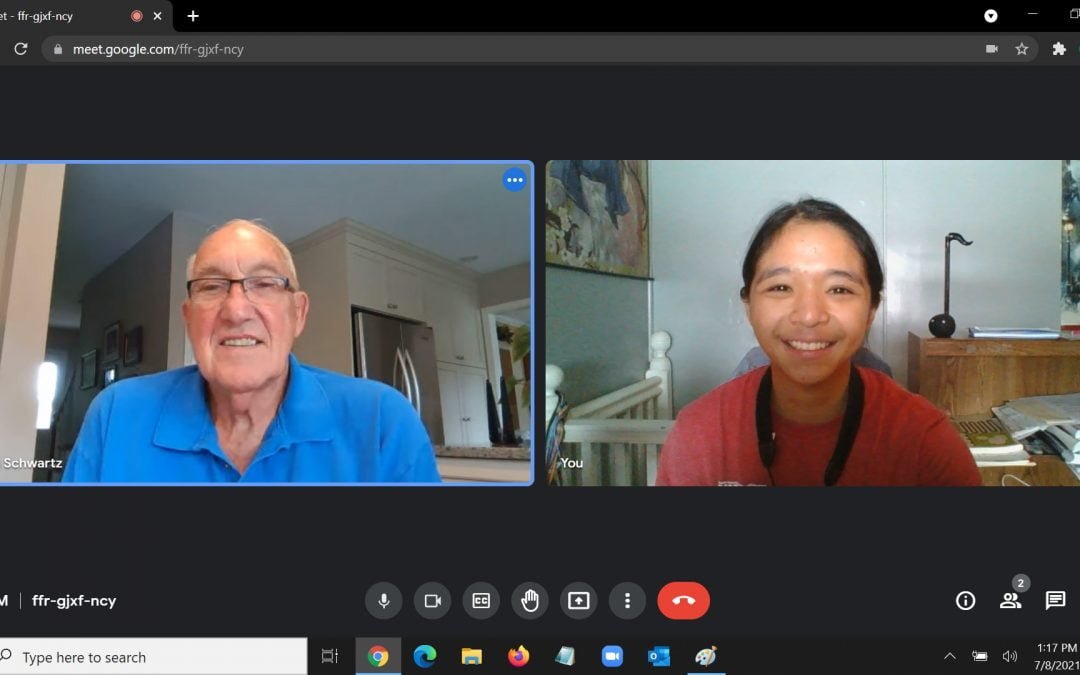During her senior year of high school, Mary Pulanco enrolled in clarinet lessons at CMS to prepare for college. Now an elementary music teacher herself, she recently returned to CMS to continue her clarinet studies with John Schwartz. According to John, “(Mary) is a joy to teach! She appears to like the challenge of learning to play artistically from her “former teacher” and discussing how to apply many of the musical concepts with her own students when they reach the appropriate level.” As the number of adult students at CMS continues to rise, we sat down with Mary to get her perspective on the experience of returning to CMS as an adult for music lessons.
How did you get started playing the clarinet?
In 4th grade, a band teacher played the Star Wars theme song on the clarinet during an instrument demo. It appeared to be the most complicated instrument, because it had more keys than the other instruments, and so I liked the challenge of it.
Do you play any other instruments?
Growing up, I learned some piano and guitar from my parents. In my sophomore year of high school, I learned the oboe for concert band, and a friend taught me the baritone saxophone for the jazz band. In college, I learned the basics of other instruments during music teacher training.
Are you currently involved in any performance groups (pre-COVID)?
I played with a couple of theater pit orchestras at local high schools. During the summer, I played with the American Legion Band. I am interested in joining the Marine Band as well.
What led you to enroll in lessons with John when you were in high school?
During my junior year in high school, I realized I wanted to major in music education in college, and I always loved the clarinet (after thinking all those years I wanted to be a cake decorator). After making that last-minute decision, I realized how daunting the college audition process was and how much I needed to work on. I researched and found Community Music School! It was my first private clarinet lesson other than the band lessons in school. I didn’t know what to expect at first, but the individual attention definitely helped me identify the areas where I needed to improve and how to go about improving them.
How did you know that you wanted to pursue music/teaching as a career?
I was always curious about how other instruments worked and loved learning new music. I had opportunities to work in bands with my peers as a section leader and drum major. It was fun, and I found that I enjoyed working with others and sharing that knowledge. I also really liked conducting, and leading sectionals and rehearsals. Currently, I am an itinerant instrumental music teacher with five elementary schools in the Diocese of Allentown.
What led you to pursue private lessons again as an adult?
I still feel that I have much more to learn on the clarinet. There is also repertoire that I never had the chance to perform as an undergrad. However, I’d like to approach those pieces with someone who has more expertise and musical wisdom than I do. It worked out that I found a job back in the area, and I remembered working with John Schwartz in high school. There’s always more to learn!
Has your perspective on lessons (and practice) changed compared to when you were in high school?
Absolutely! I wouldn’t practice with goals in high school – I thought practicing was until you get the music right with no mistakes. As an adult, it’s practicing until you can’t get it wrong anymore by mistake. With more experience since then, my ears have opened up when practicing. I notice so many more details to work on, in shaping phrases and my sound. Also, I approach practicing more methodically and look at what exactly isn’t working and why. What are specific strategies to make it better? And then, from there, I experiment until I find what works for me. I have picked up different methods from different teachers over the years.
What are your musical inspirations?
For clarinet and band music, North Texas Wind Symphony and the President’s Own Marine Band are great. As far as general listening, I’ve been exploring different music on Spotify. Some favorites are Brandi Carlile, Janelle Monae, Esperanza Spalding, and random musical and TV soundtracks.
Do you have any advice for younger students?
Time management is key – especially with juggling your own musicianship in lessons, there are also ensembles, pedagogy classes, music history and theory, and general classes too! Think about your “why” or your reason for becoming a teacher. That will help when things get tough, not only as a music ed student but also as a teacher. Find other ways to recharge and relax outside of music, too.
Thinking about music lessons? Learn more here!

